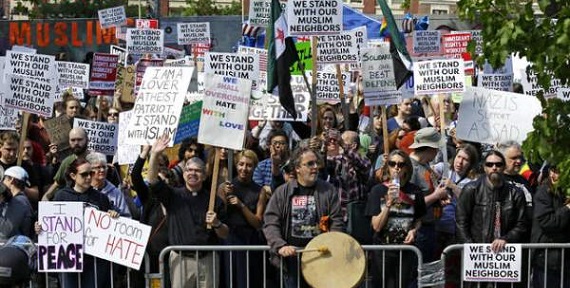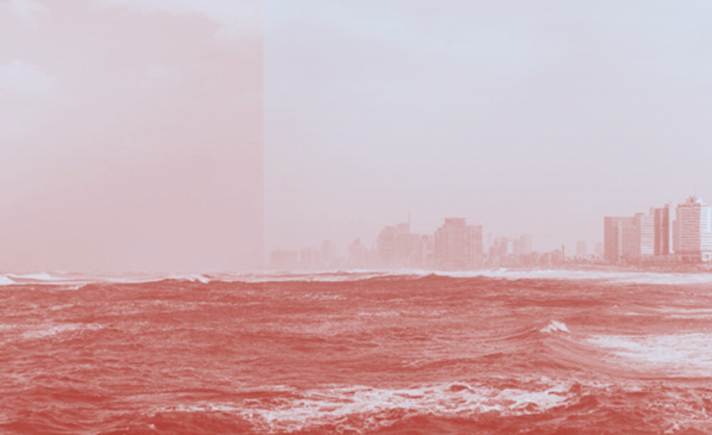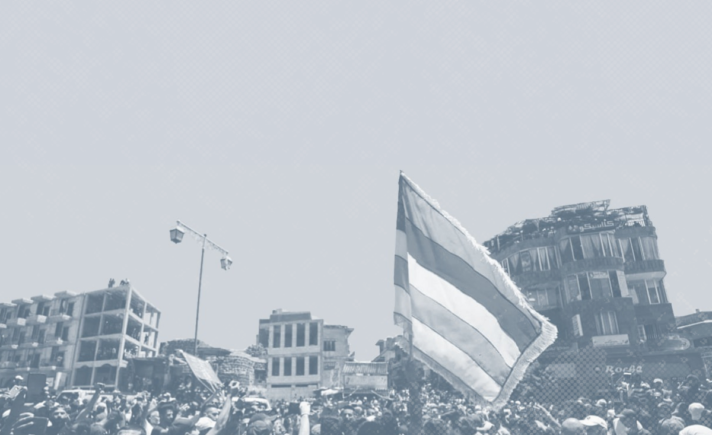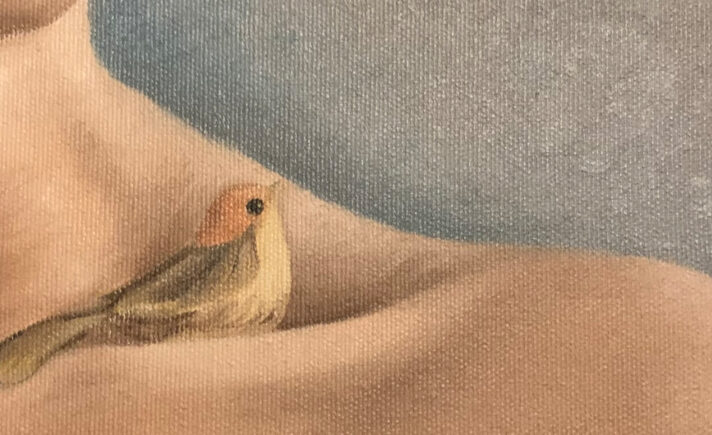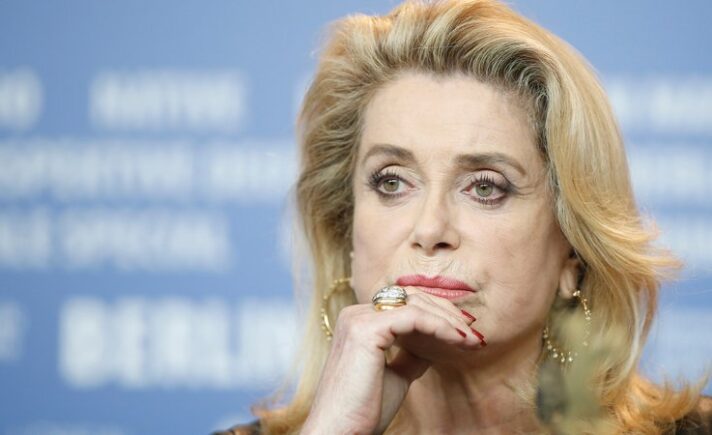The legal transplant in the Arab world, perhaps even in the Islamic world writ large, hasn’t had much luck by way of close study in US legal academia. Compared to its scholarly treatment in other non-Western contexts, such as Latin America and East Asia, the absence is glaring. This was not for want of scholarly interest in law in the Arab/Islamic world. Much has been published on Arab constitutions for instance, and you’ve had a few speakers in this lecture series, opine on the topic. Nor has there been lack of scholarly interest in types of legislation that had become symptomatic of our globalized world over the past two decades: foreign investment laws, intellectual property laws, oil and gas laws, and one must not forget that most unsavory yet pressing subject, national security and anti-terrorism laws. Rather, what is glaringly absent is the study of the “European Code”, the privileged form in which the legal transplant was first introduced only to become the permanent and defining feature of the contemporary legal system.
There is a simple reason for this and I will state it bluntly. It is because Islamist scholars and their non-Muslim academic sympathizers, be them liberals with strong multicultural tendencies or “traditionalists” hostile to the modern nation state, have hogged the study of law in the Arab/Islamic world. A consensus of sorts has for long emerged among this block of scholars that the legal transplant was a colonial imposition that has displaced, with tragic consequences according to these scholars, the organic law of the Muslim. It is the latter that is worthy of study, typically referred to by them as “Islamic law.”
The crimes of the legal transplant seem endless according to the Islamist and co literature. And it all depends on where you want to put the “theoretical accent” so to speak. If you were an ethicist with an Islamist persuasion, you’d treat the transplant and its modernist administrators and legal intelligentsia as symptomatic of the loss of a premodern ethico-religious educational system, with its learned juristic class; a loss that you’d then claim caused all sorts of bad things, including ethical disorientation among contemporary Muslims. You might even push the point further by attributing the violence of modern fundamentalist Islam to this very ethical disorientation
If you were of the “traditionalist” persuasion, hostile to the nation-state, your position would be something of a spin off from the ethicist one, where you would treat “tradition” as a form of “discourse” that you’d argue the legal transplant displaced
You might have a somewhat romantic version of the olden days of “tradition,” in which case you would represent the advent of the legal transplant as a sign of the fallen times which may never be recovered. According to this version, in the Muslim premodern times, jurists and believers functioned as an organic unit that was distinctly separate from rulers
If you were of an “anti-imperialist” persuasion, you’d ascribe to the legal transplant the role of facilitating colonial rule by centralizing the legal system and codifying the books of religious scholars, the ulama
And if you were of the liberal legal publicist persuasion, you would attribute to the old ulama class the functional role of preserving the “separation of powers” from the ruler (the executive), a role that you’d then argue has been lost with their demise as transplant displaced jurists’ law. The consequences could only be described as dire: marginalizing the only check on authoritarian rule led to the entrenchment of the latter in the Muslim world
What follows then is that, given its outsider status and innumerable disruptive sins, the European legal transplant in the Muslim world should be discarded as “superfluous” and unworthy of academic study. Scholarly interest should more properly be directed to studying that which has been lost, and figuring out ways in which to redeem it. Reconnecting Muslim to Muslims’ law from which they have been unjustly and rudely separated should be the most urgent project of academics.
There thus seems to be scholarly consensus in the US about the law of the Muslim world. If you break it down, this consensus turns out to be a consensus about law as an expression of identity. Law might mean different things to different people in the world writ large, but for “Muslims,” law is primarily a depository of identity.
The assertion that law for Muslims is primarily a depository of identity seems to suggest a dual political project, one implied in another. That is, turning the meaning of “Muslim” (who is properly a Muslim?) and the meaning of “law” (what counts properly as this Muslim’s law?) into a locus of debate, and even conflict. If the social tapestry in the “Muslim” world is boiling with various loci of conflict, on wealth distribution, on rights and liberties, on political representation, then the Islamist proposition is to open a conflict front on the identity of Muslims and of their laws. It is an invitation to discourse on identity by turning it into a question of debate.
While the Islamist project has experienced a great deal of success vis-a-vis the first leg of the proposition (who is a Muslim?) it has yet to become victorious on the second – Muslim’s law.
Let me explain what I mean by telling you a story. Over the summer, I was approached by BBC Radio Britain to debate an author who had co-authored a book on the Gay International, its virtues and vices, which was titled Queer Wars. As some of you I am sure know, the “Gay International” is premised on international advocacy of gay rights driven by highly motivated Western gay activists. The book was interesting and covered several regions in the world where local gay rights struggle was unfolding. While the authors adopted as their background position the common “cultural imperialism is bad,” as one would expect from academic authors these days, they nevertheless took a nuanced position towards the various regions they discussed in the book, highlighting the complexity of the efforts of international solidarity; how “Yes, it might help local activists to receive international support” and how “No, it might sometimes hurt them by exposing them to attack and inciting open public homophobia.” However, they were clear that the Muslim world is not a place where such “nuance” might hold. Their attitude in relation to that “Muslim world” was simple: don’t even go there!
I pushed back and insisted that there are indeed gay rights activists in the Muslim world, that they too need “measured” international support and only when they ask for it, and that there is indeed a difference, which the authors of the book seemed to confuse between internationalism and universalism – the former being a question of political deliberation while the latter a question of principles applied to Muslims just like everybody else. When I pointed out that Muslims too have universalist aspirations, my interlocutor begged to differ. Not wise for Muslims, he repeated. Too dangerous, he warned the BBC listening audience. The debate was fast-paced, intense and lasted only twenty minutes. I emerged from it feeling bruised. I felt that somebody had just thrown a bucket of identity at me and asked me to sit in it. What was uncanny is that my interlocutor experiences himself as adopting a “progressive” position.
Why am I telling you this story? Because turning the “Muslim” (a complex social being) into a homo-Islamicus (a mere bearer of identity) is an Islamist project. In fact, I think that the Islamist project is premised on equating the Muslim with the homo-Islamicus (turning one into the other) by dropping from its account the multiple ways Islamist governance have taken place over the past three decades or so – which had produced this “Muslim.” This is the privileged subject of Islamist discourse. That has happened ever since what is commonly and proudly referred to among Islamists as “The Islamic Awakening” peeked out its head in our midst. Failing to see the ways in which this “Muslim” had been produced becomes then the progressive marker, the point of pride, the moral certitude of liberal multiculturalists such as my interlocutor on the BBC radio show. No gay rights for you Muslims, because “gay” and “rights” are foreign to who you are!
At 54 years of age, and having born witness to the rise and mounting influence of this Islamic Awakening among my peers, I can give you a brief account of how I have myself experienced it, especially as a woman. There is nothing dramatic in what I am about to say, so don’t expect stories of cuttings, whippings, or stoning. Expect nothing that would draw your pity juices, or your tears of sympathy for the “oriental” woman, nothing that would invoke the “violence” that would offend your Western liberal sensibilities. It was all “voluntary” as young Muslim feminists (and their Western cohorts of the third-wave) like to assert nowadays! It was all voluntary in a Saba-Mahmoud-kind of way.
The women of my generation witnessed the emergence, increased influence, and soon enough hegemony of what I will call “The Muslim woman governance.” This “Muslim” woman appeared from within our midst: our family, our school, our workplace, and our neighborhood. She was like us, and then one day, she no longer was. She “separated herself from us” either affectively or socially or both, because she found a God that inspired her to submit to Him. This God asked her to cover herself, so she wore the hijab. She covered her hair, pulled her sleeves to her wrists and her skirt to her ankles. She promised us His rewards if we were to veil ourselves too, and when we ignored her she threatened us with his rage. The torture of the grave was just the beginning of our after-death punishment – ordeal for failing to obey His commands. According to the “Muslim woman,” we would be interrogated by an archangel why we refused to veil ourselves during our lifetimes, and as we fail to answer, we would be doomed to the “torture of the grave.” Worms and snakes would crawl up our exposed non-hijabi skin and… well, you can imagine where this horror scenario is going.
My generation witnessed the increasing success of this “Muslim woman”: we would meet with our friends to celebrate someone’s birthday, and one of the girls would show up having adorned a hijab; we would go to school or to work and see a classmate or colleague enter the room with her head changed; we would go on a family visit and a cousin would proudly saunter her way through the room with her hair covered.
With the increased success of this Muslim woman and the hegemony of her hijab, our non-hijabi attire came to be signified through differentiation as the dress of those Westernized outsiders, or of those disbelieving “kuffar,” or of those promiscuous harlots wishing to seduce men, and the list goes on. As hijab became the costume of the majority, non-hijab became simply the attire of “Christians.” (Christians here is reference to the Christian minority, for even prostitutes somehow decided to don the hijab).
It was an astonishing feat! A testimony not just to the success of Islamism as a social governance project, but also to how its epistemology relied upon this social governance project as ongoing background fact. It is when what we wore (whatever that was) became understood socially as the negative of hijab –(non)hijab– and when it became so unusual to come upon it in public space, so much so that its wearer acquired the signification “Christian woman,” it is then that the term “Muslim Woman” acquired its positivist meaning. To put this in less bullshitty terms, you cannot have a “Muslim woman,” a term much bandied about these days, unless you’ve had a social project whose goal is to create a referent to this term, a person whose social profile fit the signifier “Muslim woman.”
The whole thing was pretty darn awful, especially if you were a Christian woman. If you were, it was a double whammy. You’d find yourself “Christianized” twice: First as a member of a community now defined as “the Christians,” who the Islamists would rush to assure us “have their own rights too,” which means your political citizenship is swapped for sectarian membership; and second as one who wears her Christianity on her back in the form of a dress that would scream “here walks a Christian.”
It’s not like when this Muslim woman’s hijab hit our shores we were not or did not see ourselves as Muslims. We were, very much so. Our non-hijab was already modest. We lived our lives, our friendships, romances, and work relations with men as one would expect women to do in a socially conservative society. There was of course room to maneuver, interpret, play around and rebel in secret. But the discourse around women’s bodies, dress, and sexuality was and remains to this day supremely conservative. I tried to explain the way all that worked –the norm and resistance to it– in my article on honor killings so I refer you to it shamelessly.
The Islamic Awakening came and made this non-hijab (or rather our bodies themselves) a locus of identity conflict. It did so by declaring our dress un-Islamic. This was open season on our bodies. Not only did we suddenly find our bodies and the propriety of our public appearance being debated, whether in our own families, places of education, work places or from the high on the minarets, with born-again Muslim men speaking as supreme authoritative voices; it also exposed us to the discipline of the street, as street harassment put the rising hegemony of Islamist doctrine into practice. We became fidgety walkers, anxious about our public appearances, pulling our sleeves down to the wrists, skirts down to the ankles, collars up to the neck, mimicking the hijab even when we were not hijabis. The Islamist social governance project was now enacted both on the very surface of our skin and deep inside our neuroses. I am reminded of all this when I go back home to visit and I see hijabi women in my family rummaging frantically and reaching out for their scarves to cover their head whenever a “strange” man enters the room. That we didn’t do.
Social governance has turned into self-governance.
It was as if we transitioned within the family from the episteme of “shame” (‘ayb in Arabic), back when we were a socially conservative society that was Muslim, to the episteme of the religiously prohibited (haram), when we became Islamism’s homo-Islamicus. Within the first episteme, we negotiated our dress with our mothers who, whenever we appeared to them to be breaking society’s dress code, reminded us warningly of people. “What would the neighbors say if they saw you dressed like that?” our angry mothers would retort, aghast at our shorter-than-usual skirts. We would argue, plead, explain, and offer compromises. Sometimes we won, making our way out of the house feeling victorious, and sexy; other times we lost, making our way back to our room feeling miffed and angry, mumbling to ourselves about the awful backwardness of our folk!
Within the second episteme, that of haram, our dresses became the locus of public debate, not just “the talk of the neighbors.” It was the street, radio stations, TV channels, minarets… We came to negotiate our dress with our born-again Muslim brother (or neighbor, or local shopkeeper, or cabdriver) who spoke to us authoritatively in the name of the divine law. With Islamicization, our dress entered a new discourse, one informed by “Islamic law,” what is haram. In other words, it has become “legalized,” so for it to exit the domain of the prohibited and enter the domain of the permitted, as Islamists like to put it, it had to be subjected to a divine test about what could be revealed and what could not, how much hands, how much feet, how much tightness, how much color. It was no longer the neighbors who were watching, it was the very eyes of God; and not so lovingly. We were often reminded of his wrath if we disobeyed. It was as if our attire passed from our mothers’ “rational basis” test to our religious brother’s “intermediate” or even “strict scrutiny” one.
Where is this going, you may ask yourselves, and what is any of this related to the legal transplant? Well, I tend to think of the legal transplant as our pre-hijab dress, when we were simply Muslims. Like that dress, legal transplant has become the locus of identity conflict, which Islamists succeeded in triggering in the rest of the social body. And like pre-hijab, the positive law (or al-qanūn al-waḍ’ī as Islamists like to refer to it disparagingly) was sufficiently Muslim, it was kind’a Muslim, Muslim in a way nobody paid attention to really or cared about, Muslim by default. Like our dress, it was simply Muslim. It certainly had other problems, but an Islamist strict scrutiny test of its identity was not going to fix these problems. In fact, that proved to be nothing but a terrible distraction, the kind that the right wing succeeds in doing by recasting the problems of society in terms of threat to the tight organic state which society is imagined to have had been before blacks, migrants, feminists…, despoiled it. For Islamists, it was before the modern state and its secular Code despoiled it.
Interestingly, this Islamist project of subjecting the “European” Code to the test of Islamicity experienced a golden age, albeit a brief one, with the rise of constitutionalism in the aftermath of the collapse of the Soviet Union. Like their peers in other places, constitutional courts in the Arab world, for complex reasons that I won’t get into, became increasingly open to the idea of judicial review of legislation. Silent constitutional articles such as “Sharia is the sole source of legislation” suddenly came to life, as the practice of judicial review became the hottest law story in town. All sorts of legislation were being judicially reviewed through pressure from Islamist litigants, including ones considered to be not “properly Islamic”.
US-based Islamic law scholars chipped in with their constitutional law proposals in a parallel movement of rise in constitutional law scholarship. Some returned to books of Muslim jurists, dusted off a few terms and used them to express constitutionalism in Islamic terms, hoping to influence the way simply Muslim judges approach their otherwise unfamiliar task. Some offered ways to fashion the Islamicity test in a way that was “normative” rather than strictly “doctrinal.” Some saw in constitutionalism a way to sneak back “Islamic law,” in a kind of a silent coup d’état or a rear-guard action in which Muslim law acted as a form of “natural law” and refashioned, incrementally, rule by rule, the culturally alien positive law
This was not an enterprise that was devoid of anxiety. Islamist litigants had a knack for attacking reform legislation touching on women, religious minorities or freedom of expression. But liberal scholar needed to open the Sharia door without letting in those that would discredit it. While those scholars with liberal sensibility set to work, trying to come up with an Islamic doctrine that was “authoritative but not authoritarian”
If you were an Islamic law scholar in US academia for a good stretch of two decades, those were exciting times for you. Judicial review and Sharia as the sole source of legislation gave you the feeling that your work was relevant, that many lonely hours spent deciphering what dead brown men said in the tenth century about the different levels of legality to characterize an action was definitely worth it. Gulf countries with oil money to spend lavished elite law schools in the US with donations to set up programs on Islamic law, giving value to your scholarship. What you wrote was inserted inside the circuit of conferences and symposiums financed by those programs. What you wrote was hot stuff; it was on demand.
And this was a very good position to be in. The rising prestige of US legal academia after the fall of the Berlin Wall made your presence in it during this time a stroke of darn good luck. What you wrote rode an already traveling vehicle of US academic prestige, and was being transported back to the “Muslim” world in a way that was not possible before. You had a good shot at being famous. The near collapse of academic institutions in those countries, worn out by years of failing developmental states, made their scholarship unable to compete. Whatever scholarship was produced there, given its very local location, either was objectively inferior or acquired a secondary status to your own. You could afford to be ignorant of what they write about, but increasingly they could not afford to be ignorant of you.
I mustn’t forget to mention (my pet peeve as I will explain in a minute) that you also benefited from the US legal theory “Canon” all of which you used in your Islamic legal reconstructive project. All of this made you sound smart, different, and original; you turned Islamic law, an impossibly tedious topic to multitudes of law students in the Arab/ Muslim world, into something exciting, something almost intellectual. With the rise of Islamism, your scholarship reassured young born-again Muslims that they could be born again, and intellectually sophisticated so, by reading your scholarship. You were the “Muslim” jurist they had not seen before and wished they did.
With the Arab spring and the rising fortunes of the Muslim Brotherhood in Egypt, there was a moment, especially with the passage of the Islamist Constitution of 2012, when you felt that you were something of a jurist-in-waiting. There was a constitution that was perfectly tailored to give your scholarship a consultative status; surely, it was only a question of time before you received a phone call to become the next sitting Ikhwan-approved jurist in the Egyptian Supreme Court.
Alas, with the mass demonstrations in June of 2013 against the Ikhwan and their quick and cruel demise, all this came crashing down. Just when you thought the Muslim had finally merged with the indistinguishable homo-Islamicus (the election results after the fall of Mubarak certainly seemed to promise as much) and the world was ready for an “authoritative albeit not authoritarian Islamic law,” Egyptian crowds came out by the hundreds of thousands decrying the “Islamists” and their ways. “They acted like a closed sect”; “they treated themselves as the knowing few whose mission was to educate us on Islam, we the misguided many”; “they were only interested in their own interests” was some of the things you heard sadly!
Oops! It turns out that “the authoritative and the authoritarian” were closely aligned in people’s experience only when it comes to fixing their Islam. People were clamoring to become simply Muslim again.
So what do you do NOW? ISIS is everywhere on the news. A whole war is declared on them and them alone. They kill by invoking the name of Allah. Is this Islamic? They ask you. Everywhere you go. You are exhausted trying to explain to them that this was not “an Islam you recognize.” It takes some work but you are already thinking your days of glory have proven brief, much too brief. This was Wahhabism, you’d explain, a purist fundamentalist strand of Islam financed by Saudi Arabia. It was a mistake for Egypt to forcibly remove the Ikhwan from power; we warned them violence would only beget more violence and would empower the fundamentalists. You try again: Muslims have lost their way with the corrupt modern secular state. They have become ethically disoriented. They cannot tell right from wrong. And when it comes to homegrown terrorism, you assert, Islamophobia breeds violence.
You bravely soldier on with explanations, until a journalist calls to ask you whether it was Islamic for a 14-year-old boy to refuse to shake hands with his school teacher as is customary practice in Swiss schools, and whether you thought the little town in Switzerland that passed an ordinance fining any student who refused to do so was Islamophobic. You feel like throwing your phone against the wall. While you didn’t quite mind being the mufti, it was not exactly this kind. You find yourself thinking how is it that what promised to be a position of justice on the Egyptian Supreme Court ended up with you playing a mufti on the demands for exception among Muslim minorities in the West, while fending off questions about ISIS and Islamist violence.
What I am trying to say is, the Islamic law project that found a friendly home in US academia has reached a dead end. With its eye on transforming the legal system of the Muslim world, its advocates find themselves today in a defensive position, trying to explain Islamist violence as it peeks its head in bursts on a daily basis; or alternatively acting as mediators between a liberal legal system and a religious minority clamoring for its own Islamic exception.
This is all a shame in my view. This project has hogged intellectual, symbolic and financial resources that could have gone elsewhere. It could have gone to rescuing the positive legal system in the Arab/Muslim world, the descendant from the legal transplant, from its jurisprudential glut. All the elements were there to do so. A revolution in rights advocacy had already started in the 1990s and showed its metal with the Arab spring. Rights and liberties have driven youth to led the crowds assertively to the overthrow of Mubarak. Equally assertively they approached the courts. They read their constitution closely and argued their rights from the provision of its articles. If the resources that went to “Islamic law,” in which the Muslim was singled out as an exception to the Comparative law of everyone else, and instead went to lending “a theoretical hand” to the rights movement that was brewing, especially from US based legal theory, the most innovative and developed in the world, we would have been in a different place today. Instead, we seem to have been sidetracked by a long and windy conversation on identity and difference, when all the while we should have been talking about rights and liberties.


